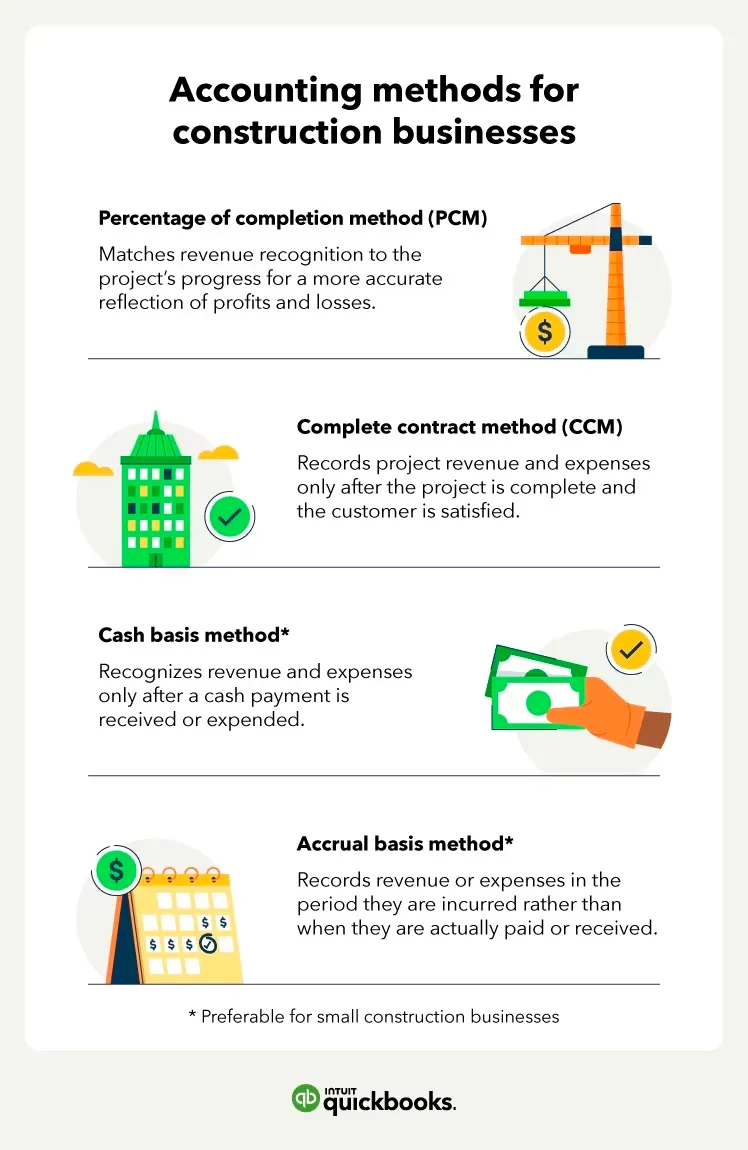Construction Accounting: Simplifying Complex Financials in the Construction Industry
Discovering the Significance of Building And Construction Accounting in the Building Sector
The construction industry runs under distinct financial challenges that demand a specific method to audit. Building and construction accountancy not only makes certain the precision of financial reporting but likewise plays a pivotal role in project monitoring by allowing reliable work setting you back and resource appropriation.
Special Challenges of Building And Construction Accounting
Regularly, construction audit provides one-of-a-kind difficulties that distinguish it from various other industries. One key obstacle is the complicated nature of construction jobs, which typically involve numerous stakeholders, rising and fall timelines, and differing policies. These aspects necessitate careful monitoring of costs linked with labor, products, equipment, and overhead to keep project earnings.
An additional considerable obstacle is the need for precise work setting you back. Building firms must allocate prices to particular tasks properly, which can be difficult as a result of the lengthy duration of jobs and the possibility for unpredicted expenditures. This demand needs durable accounting systems and methods to ensure precise and prompt financial reporting.
In addition, the construction industry is vulnerable to transform orders and agreement modifications, which can further complicate financial tracking and forecasting. Correctly representing these modifications is important to make certain and stay clear of disagreements that tasks remain within budget plan.

Key Concepts of Building Bookkeeping
What are the foundational principles that guide building audit? At its core, building and construction accounting revolves around precise monitoring of expenses and incomes connected with details projects. The first principle is making use of task setting you back, which makes sure that all expenses associated with a task-- labor, products, expenses-- are thoroughly recorded and assigned. This enables precise profitability evaluation at the job level.
An additional key principle is the application of the percentage-of-completion technique. This technique identifies revenue and costs proportionate to the job's development, supplying a much more realistic view of financial performance in time. Additionally, construction bookkeeping stresses the importance of compliance with accounting requirements and guidelines, such as GAAP, to make sure transparency and dependability in monetary coverage.
Furthermore, cash money flow monitoring is essential, provided the frequently intermittent nature of building tasks. These principles collectively create a robust structure that supports the special financial needs of the building sector.
Benefits of Reliable Construction Accounting
Efficient construction accountancy gives various advantages that significantly improve the total management of jobs. Among the main advantages is improved monetary presence, enabling job managers to track expenditures properly and keep an eye on capital in real-time. This transparency promotes informed decision-making, reducing the threat of budget plan overruns and guaranteeing that sources are alloted efficiently.
Additionally, effective building and construction accounting enhances compliance with regulative demands and sector standards. By maintaining accurate monetary records, companies can quickly supply documents for audits and satisfy contractual commitments. This persistance not just cultivates trust with stakeholders and customers but also reduces prospective legal risks.
In addition, reliable accounting practices add to better task projecting. By analyzing previous efficiency and monetary patterns, construction firms can make even visit the website more exact forecasts relating to future task prices and timelines. construction accounting. This capacity boosts calculated planning and enables companies to respond proactively to market fluctuations
Devices and Software Program for Building Bookkeeping
A range of specialized tools and software application solutions are available for building and construction accounting, each developed to streamline economic administration processes within the sector. These tools help with tracking, reporting, and analyzing economic data certain to construction projects, ensuring accuracy and compliance with market requirements.
Leading software alternatives include incorporated building management systems that include project budgeting, management, and audit performances. Solutions such as Sage 300 Construction and Realty, copyright for Contractors, and Perspective Panorama offer includes tailored to deal with work costing, payroll, and invoicing, making it possible for construction companies to keep accurate economic oversight.
Cloud-based applications have acquired appeal due to their access and real-time collaboration abilities. Devices like Procore and CoConstruct permit groups to gain access to monetary data from several areas, boosting communication and decision-making procedures.
In addition, construction bookkeeping software application usually supports compliance with regulative demands, promoting audit trails and tax obligation reporting. The integration of mobile applications additional improves functional performance by enabling area workers to input information straight, minimizing hold-ups and mistakes.

Finest Practices for Building Financial Administration
Successful building and construction audit depends not only on the right tools and software application yet additionally on the execution of best practices for economic administration. To achieve reliable monetary oversight, construction firms need to prioritize regular and exact task link budgeting. This process entails breaking down job prices into detailed classifications, which allows for far better tracking and projecting of expenses.
An additional vital practice is preserving a robust system for invoicing and capital administration. Prompt invoicing makes sure that settlements are gotten immediately, while persistent cash money flow tracking helps stop liquidity problems. Additionally, building and construction companies must adopt an extensive method to work costing, examining the actual costs versus budget plans to identify variations and readjust strategies appropriately.
Furthermore, promoting openness with thorough economic coverage boosts stakeholder count on and aids in notified decision-making. Routine monetary testimonials and audits can additionally reveal possible inefficiencies and locations for renovation. Last but not least, continual training and development of financial management abilities amongst team make sure that the team stays skilled at navigating the complexities of building audit. By incorporating these best practices, building and construction companies can improve their economic security and drive job success.
Final Thought
To conclude, building and construction bookkeeping acts as a basic you could try this out component of the building and construction market, addressing unique challenges and sticking to essential concepts that enhance economic accuracy. Efficient accountancy practices produce significant benefits, consisting of improved capital and conformity with governing requirements. Making use of suitable devices and software application better supports monetary monitoring efforts. By executing ideal practices, building companies can foster stakeholder depend on and make notified decisions, eventually adding to the total success and sustainability of projects within the market.
Building accountancy not just makes certain the accuracy of monetary coverage yet likewise plays a pivotal duty in project administration by allowing reliable work setting you back and resource allotment. Furthermore, building bookkeeping emphasizes the significance of compliance with bookkeeping requirements and policies, such as GAAP, to guarantee transparency and reliability in economic reporting.
Successful building accounting relies not just on the right devices and software but additionally on the execution of finest methods for financial monitoring. Constant training and advancement of financial monitoring skills among team make sure that the group stays skilled at navigating the intricacies of building bookkeeping.In final thought, construction bookkeeping offers as an essential component of the building and construction market, dealing with unique obstacles and sticking to crucial principles that boost monetary precision.